DAOs Give Fans a Sporting Chance | State of the DAOs
You're reading State of the DAOs, the high-signal low-noise newsletter for understanding DAOs.
gm and welcome to the Sports Edition!
Crypto-native tools like NFTs, social tokens, and DAOs are revolutionizing the way sports are played. Sports teams already have passionate communities, and in this issue theconfusedcoin shows us how DAOs can deliver on the dream of community owned sports clubs and offer exclusive member benefits. No longer confined to the sidelines, fans have an opportunity to experience that familiar rush of adrenaline as they take the field and share in the upside of their favorite teams.
We also scouted out the best articles to give you the TL;DR on what's happening in the world of sports, as well as highlighting two projects that are already using the magic of Web3 to change the rules of the game: Krause House DAO and LinksDAO.
It’s game time.
Contributors: BanklessDAO Writers Guild (theconfusedcoin, HyperZen, Chhavi, WinVerse, jaux, IspettoreCrypto, Cisco, Ornella, hirokennelly.eth, siddhearta, Jake and Stake)
This is the official newsletter of BanklessDAO. To unsubscribe, edit your settings.
🙏 Thanks to our Sponsor
DAOs Give Fans a Sporting Chance
Author: theconfusedcoin
Growing up, many of us dreamed of becoming professional athletes. That adrenaline rush when you score a goal, hit a home run, sink a three pointer, or hit a forehand winner that kisses the baseline is something we have all craved at some point.
As we grew older and realised that professional sports may not be our calling, owning a sports team became the next dream. This dream is beyond reach for most of us, unless you were born into extreme wealth, bought 50,000 BTC at 1 USD, or are Elon Musk. The closest we can get to owning a team is buying shares in a publicly listed entity like Manchester United. Such an investment, however, doesn’t really translate into having any real say in what’s happening within the club, and certainly not at an operational level.
As sports of all kinds become more commercialized, fans are rightfully fearful that their favorite clubs are losing their soul. Something needs to be done to take back the heart of our community’s favorite pastimes.
Enter DAOs.
Decentralised Autonomous Organisations, or DAOs, are community owned organisations without a highly centralised leadership team. The organisation is collectively owned and managed by its members. Decision-making is typically by majority consensus, enabling each member (depending on the DAO’s voting mechanism) to have a say in the path the DAO chooses to follow. The treasury is also collectively managed, with deployment of funds sometimes being determined by fully automated on-chain transactions.
The obvious question is where do sports teams tie into this? Like DAOs, sports are a phenomenon that bring communities together. Race, religion, wealth, or social status are forgotten when you’re watching your favourite team play. Wins can make your day, while losses can ruin them. With so much attention and emotion invested, it’s a shame that we have absolutely no say in the future of the club.
For too long, sports teams have been managed and run by the unpredictable and opaque whims of their owners. Fans are often left wondering why this player was brought on or let go, or why some particular choice was made. But fans make the team, and if there was ever an entity that is meant to be collectively owned and managed, it’s a sports team. To understand where DAOs can make a difference, let’s look at a few scenarios.
Misaligned Interests
Many great teams have been destroyed because owners focus only on using them as profit centres. Newcastle United, a football club in the English Premier League, used to be a very competitive team. After their takeover by an owner who did not prioritize the club’s success, star players were sold and the proceeds were drained from the club. This profiteering ultimately resulted in the club spiraling and led to the team’s relegation to the second division.
Being owned by one person and controlled by a centralised organisation, the decision of the owner was final and no amount of protests or pleas from fans were of any use. Newcastle has some of the most passionate fans in football, and seeing their club falling apart was heartbreaking.
In this case, ownership of the club by a decentralised autonomous organisation would have been liberating. DAOs allow a group of people to come together and collectively own and manage a team. Decisions about transfers, utilisation of funds, and scouting of new talent could all be put to a vote and collectively decided by a group of people who are both monetarily and emotionally invested in the future of the club. Ownership can be distributed in the form of governance tokens that can act as voting mechanisms. This will also make ownership liquid and allow for greater participation by individuals who are passionate about running the club and are emotionally invested in its success.
Many passionate supporters have as much knowledge about the game as the so-called ‘experts.’ DAOs could give these supporters a chance to actively contribute and share their knowledge for the benefit of the club. Viewing problems from the outside the head office could lead to effective solutions that no one can see from the inside.
Limited Resources
Professional clubs rely on a relatively small number of people to make decisions about which manager to appoint, which players to scout, and which players to sign. While this is advantageous when you have the right people invested in the team for the right reasons, it can be devastating when you don’t, which is the case for most of the smaller clubs running on a tight budget.
Involvement and investment by people who know the club will give decision makers access to a larger information set. Tokenized ownership incentivises people to go beyond what is expected as it gives them a sense of belonging to and being part of something bigger than themselves. Every fan craves to be recognised by the club they support and tokenization allows DAOs to reward fans that are actively participating in making the club better.
Transparency
Most major sports teams are owned by organisations that are not exactly transparent. It is rumoured that many owners use these teams to wash money earned from questionable sources and also to save on taxes. While it may lead to large amounts of money being pumped into the club, it leaves a bittersweet feeling amongst supporters.

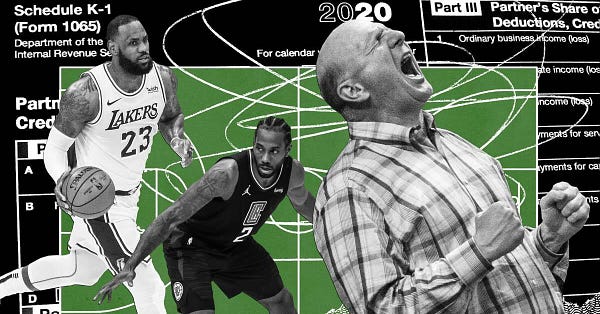

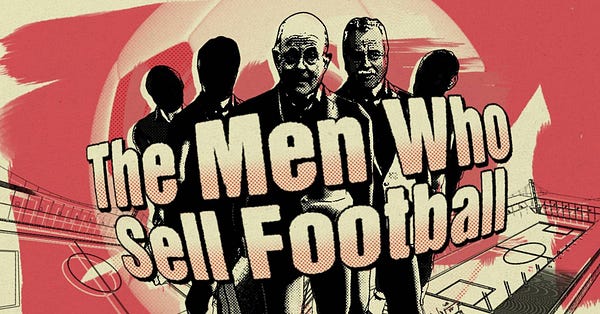
Transactions from treasuries managed by DAOs are recorded on the blockchain. Holdings and transactions are public and can be reviewed by anyone. This gives supporters and auditors clarity on the origin of funds and also on where they’re being deployed.
Many regulations have been put in place to ensure illicit money doesn’t find its way into sports, however, the current system is not transparent so it's easy for sophisticated owners to circumvent the law. Many professional leagues see a concentration of capital amongst a few clubs and franchises, making leagues one-sided and less fun to watch.
Additional Revenue Streams
Tokenizaton can open a world of possibilities in terms of revenue streams and fan engagement. Since token ownership is liquid and tradable through an exchange, the club could generate revenue through fees. Innovative tokenomics can also be developed to further boost the utility of the token. For example, staking tokens can increase the weight of your vote. Staking also reduces the total supply in circulation, which could help to increase the token price.
Revenue through tokenisation without sharing of ownership is something that clubs are already thinking of.
IQSocios, built on the Chilliz blockchain, is attempting to do this by helping clubs involve supporters by making token holders part of certain decision-making processes and giving them voting power based on the number of tokens held. Competitions are also held where winners are rewarded in the form of the club's native token. For token holders beyond a certain threshold, access is being given to exclusive chats, match-day tickets, and Facetime with players. At the moment, most of the benefits of holding a token are cosmetic; however, we can see the direction in which we are moving.
There are many benefits of having a DAO own a sports team. Aligned incentives, collective decision-making, additional revenue and transparency in financial dealings are some of them. However there are two sides to every story. There are certain hurdles that need to be overcome.
Challenges for Sports DAOs
Regulations
Owning a team involves having a number of licenses that can only be issued to legally-registered organisations. Further, in most professional leagues, the governing body of the league and the other owners have a say in whether new owners of a team are acceptable.
Most teams today are run by owners for whom crypto is still an alien concept. To get approval from these governing organisations for a DAO to own a sports team might prove to be a challenge.
Trade Secrets
With DAOs, most of the information is in the public domain, whether in Discord chats, Notion pages, or on the blockchain. While this can be a boon for transparency, it can be a bane for the inner workings of the club. Tactics, strategy, game plans, transfer policy, and team dynamics are things that need to be kept private from the competition. The distinction between what is and isn’t available in the public domain is something that can prove to be a challenge for these organisations. They will need rigorous governance policies and procedures to ensure confidential information is appropriately maintained.
Laboured Decision-Making
Most critical decisions made within DAOs are put to a community-wide vote. Sufficient notice must be provided for all members to effectively participate. However, at times, decisions need to be quickly made or the team might miss signing the next superstar. Imagine a scenario where the DAO has decided to offer a player a maximum of $20,000 a week. The player’s agent is insisting on $22,000. Is it worth losing top-class talent for $2,000? That decision needs to be made at that very instant, which may not be possible without providing the right kind of decision-making authority to the right people in a DAO. How much leeway should be given to certain roles and where to draw the line is something that will require a thoughtful DAO governance structure.
DAOs owning and successfully operating teams involved in physical sports will surely be a possibility in the near future. Attempts are already being made in the MLB and NBA to purchase teams, although DAO governance and regulation still needs to mature for DAOs to efficiently manage the different facets of owning a team. However, one area where physical sports can learn from is e-sports.
E-Sports Lead the Way
E-Sports are something that adapts more naturally to the current structure of DAOs. Top players come together and form a ‘clan’ that participates in various tournaments across the world. Depending on the skill set and reach of the clan members, funds are raised to support players to participate in various tournaments. As the treasury swells, higher quality players are poached and the team keeps getting better.
In most cases, access to the funds is restricted to a few clan members. This leads to power concentration and decisions are made based on the opinions of a few. This system can easily be replicated and improved upon by using DAOs. By having a common treasury, everyone has a say of where the funds are deployed. The addition of players and tournament selection are decided by the community, and no single person has control over the future of the team. One of the first examples of this concept was MetaClan, which was a crypto-native DAO focused on play-to-earn games. We will likely see many more iterations in the e-sports domain that continue to shape the best way forward.
DAOs For the Win
Sports teams collectively owned by their fans are the future. People who are emotionally and monetarily invested in the success of an organisation must have an active say in how it is run. Before, this mechanism seemed beyond reach, but with the invention of blockchain and DAOs, it is possible for this to soon become a reality. Governance and processes need to mature, but the blueprints are already being drawn up. The future of sports teams being owned by supporters is within reach. Now we just need to get the ball in the net.
Actions steps
📖 Read Ideas Ignited | Why DAOs could revolutionise decision making in sport
🎧 Listen Seed Club | LinksDAO - Mike Dudas
🎧 Listen Seed Club | Krause House - Flex Chapman, Commodore
🙏 Sponsor: Balancer DAO- #BALbattles begin!
DAOs at a Glance
Hand-picked articles to understand the current state of the DAO ecosystem

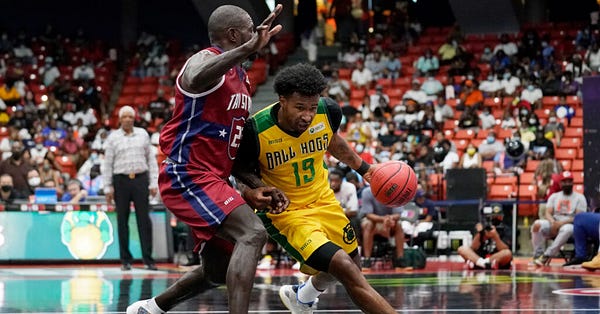
DeGods DAO Buys a Big3 League Basketball Team with NFTs
Author: Bob Mason
On April 28, 2022, DeGods DAO, formed around the Solana-based NFT game DeGods, announced their purchase of a Big3 basketball team to be owned by the community. The team obtained by the DAO, Killer 3s, was purchased via the “Fire” tier of NFTs and it took 25 tokens for the DAO to claim ownership. Per Big3’s published whitepaper, the rights to the holders include, “Ticketing, Merchandise, Experience & Activations, Direct Communication, and Voting Rights.” The DeGods DAO plans to provide “offer tickets,” merchandise, and part-ownership in $DUST for the members.
Why are sports paying athletes in crypto?
Author: LW
With the growing traction of cryptocurrencies, the sports industry has jumped on this investment trend. A number of athletes have started accepting bitcoin and other cryptocurrencies for their part or full salary or even for royalties. Cryptocurrencies do get impacted by strong market factors and there is a high level of risk and volatility, however, athletes are still in favor of having some exposure in crypto. A few of these examples include -
Saquon Barkley: The New York Giants running back, has asked for his $10 million marketing, sponsorship, and endorsements income in bitcoin to generate substantial wealth for the future.
Odell Beckam Jr: Los Angeles Rams wide receiver, believes “Get with it, or get left behind.” In partnership with payment service Cash App, Beckam announced he will be taking his new salary in bitcoin, being in the Super Bowl’s champion team.
Trevor Lawrence: announced his partnership with Blockfolio, a cryptocurrency investment app, to have his signing bonus (valued at $24 million) from 2021 NFL Draft be paid in cryptocurrencies.
UFC fighters will be receiving their winning prize amounts in bitcoin, following partnership with crypto.com
This seems like just the beginning and we should see many more athletes starting to accept cryptocurrencies as payments for significant wealth generation.
Why Fan Controlled Football Embraced Ethereum NFTs for Its Interactive League
Author: Andrew Hayward
Fan Controlled Football (FCF) allows fans to call the shots and control the way football is played. In its first season FCF had four teams, but with the return of season two, four new NFT based teams were added.
The introduction of these teams have seen FCF expand to minting their own NFT, which serves as a governance token and gives holders the right to call more shots, creating value in the process. Some fans have pushed back on the introduction of NFTs, complaining about the possibilities of scams, but with ownership and the interactive elements of NFTs, the league hopes to drive greater fan engagement.
Sohrob Farudi, co-founder and CEO of FCF described it as the collision of the metaverse and the physical world, saying that with so much innovation in the space, there are too many creative opportunities that could be missed out on.
Fan Token Platform Socios Nets Deal With Major League Soccer
Author: Andrew Hayward
Socios is a startup that helps sports teams and leagues make official licensed fan tokens. They have recently announced a multi-year fan engagement deal with Major League Soccer (MLS) and 25 additional teams in the league.
With Socios and MLS becoming official partners, the firm now has access to the MLS IP which allows for greater integration across platforms. The MLS partnerships do not currently include a fan token component, instead focusing on several digital fan engagement opportunities such as chat rooms, polls, and contests.
Socios has deals in place with more than 125 sports and e-sports teams and leagues around the world and has launched about 50 tokens on its Chilliz Chain.
Recently, MLS has also announced a multi-year agreement with Sorare where players collect official licensed NFT trading cards to form team lineups in the competitive fantasy game.
DAO Spotlight
Krause House
Krause House is a community of basketball fans that intend to buy an NBA team and govern it via blockchain technology. Krause House intends to create the first fan-governed NBA team including general management, ticketing, merchandising and partnerships, but is not limited to this set of actions.
Krause House is coordinating actions through the $KRAUSE token, the governance token for Krause House. Holders of $KRAUSE decide the future of the DAO by voting on proposals. But remember: $KRAUSE governance tokens are not a promise for future ownership of a team. The purchase of the NBA team will be funded with explicitly raised capital and could include KYC or other compliance requirements to satisfy any legal requirements.
Fans are what gives a basketball organization life. Shouldn’t they also get a shared portion of the ownership and upside? If you’d like to get involved, follow Krause House on Twitter, join the Discord, or find out more on their website.
LinksDAO
LinksDAO is on a mission to own one of the world’s greatest golf courses. They are working with top club management and golf course architects to source courses and properties worthy of a premiere golf experience. Along the way, they’re building a passionate community, delivering exclusive member benefits, and having a lot of fun.
As one of the leading sports projects in Web3, LinksDAO has executed snapshot votes on a variety of topics like DAO contributor compensation, IRL events, and charitable donations. Community members will also be able to vote on topics related to sourcing and acquiring their first golf course.
Recently, LinksDAO deployed a token gated event ticketing site to host a 150-member golf outing at SXSW, and expanded token gating functionality to include an e-commerce site and a member’s clubhouse with a directory of members and holder benefits.
They are currently working with celebrities, brands, and leading organizations in the world of golf and sports to provide exclusive benefits to members, and have announced partnerships with companies like ShipSticks, Holderness & Bourne, and 5iron Golf. Their team continues to deliver on the roadmap and is on track for course acquisition by the end of 2022.
To join the LinksDAO community as a contributor or learn more, follow them on Twitter, find them on discord or visit their website.
Ecosystem Takes
🔥 and 🧊 insights from across the DAO ecosystem
Basketball DAO, Dogecoin Wallet App to Buy BIG3 Team Stakes via NFTs
Author: Andrew Hayward
🔑 Insights: Krause House DAO and investor Bill Lee will purchase a controlling ownership stake in two BIG3 teams after BIG3’s new NFT ownership initiative, in which the 3-on-3 pro basketball league will offer ownership stakes in its twelve teams in the form of NFT collectibles. NFT ownership gives control over certain team decisions like selecting the team’s CEO, president, and VP, as well as creating team merchandise.
Krause House DAO - formed last November with ambitious plans to buy an NBA team - will purchase a controlling ownership stake in Ball Hogs team.
They will use treasury funds to pay $500,000 in USDC for all the 25 Fire-tier NFTs with a discount from the previously stated price of $25,000 for each.
Thanks to a recent deal with DeGods, Krause House will also be able to offer its community members access to purchase up to 500 total Gold-tier NFTs with a 10% discount from the public price.
These NFTs offer benefits such as free game tickets, merchandise, and more.
Bill Lee the founding chairman of Dogecoin wallet app MyDoge, purchased a controlling stake in Aliens team, and paid for it entirely in Dogecoin marking the largest commercial transaction in history for the cryptocurrency. MyDoge branding will be featured on Aliens team jerseys, at events, and in BIG3 broadcasts.
NBA and LeBron James Dive Deeper into Web 3.0, File for NFT Trademarks
Author: DailyCoin
🔑 Insights: Web3 is revolutionizing the interaction between fans and their sport teams. The NBA top shot is a marketplace that allows users to buy, sell, and collect influential scoring moments.
Looking to grow his brand through NFTs and the metaverse, Lebron James, arguably the best player in basketball history, filed four different trademarks for virtual goods, virtual footwear and trading cards. He has filed for the phrase "strive for greatness" under three categories:
Non-fungible tokens and cryptographic tokens
Clothing and apparel
Language about NFTs and consulting services in the industry
Crypto and NFTs at F1: What are firms bringing to the races beyond sponsorships?
Author: Rachel Wolfson
🔑 Insights: A number of crypto companies have been sponsoring and partnering with F1 racing teams to showcase their presence to a large and global audience. F1 remains the most popular international racing series and attracts a large following. Out of the ten F1 teams in 2022 season, eight are sponsored by crypto firms like FTX, Fantom, Binance, Bybit, Tezos, crypto.com, Floki, and Velas.
There are multiple ways in which crypto firms and F1 teams mutually benefit from these partnerships:
Market match: It acts as a good marketing platform for crypto companies considering both crypto and F1 both involve substantial wealth and have global presence.
Traction for sponsorships: A study predicts by the end of 2022, around 5 million sports fans around the globe will own an NFT sports collectible. This gives a platform to these crypto firms to launch sports NFTs as well, as was done by Fantom to showcase their imagery across sports suits and helmets.
Fan tokens: Bybit is doing a similar engagement by issuing fan tokens to the Oracle Red Bull racing team. This would entail some decision making rights in the hands of the community.
Crypto Education: An additional advantage is the knowledge of blockchains being passed to a large F1 community. To aid these, a lot of crypto firms are partnering to impart knowledge of crypto, NFTs and their benefits, exchanges and a lot more to fans.
‘The industry will need to have dynamic NFTs,’ says Vivid Labs CEO Halsey Minor
Author: Ornella Hernandez
🔑 Insights: Dynamic NFT is a concept that connects NFTs to real world products. This concept draws a line between creators that release immutable assets like songs and those who make dynamic assets.
The use cases of dynamic NFTs can be seen in:
Updatable NFTs that are in constant communication with the customers.
Blockchain collectibles. The ability for a collectible to change state due to lack or show of attention by its owner, developed by Koii Network, shows how dynamism can be brought to NFTs.
Get Plugged In
🧳 Job Opportunities
Get a job in crypto! Do you like solving hard problems, care about building more efficient markets for everybody, and want to work at the frontier of decentralized finance? KeeperDAO is looking for full time contributors, with salaries ranging from $169,000-$722,000. There are positions ranging from engineering, recruiting, product marketing, copywriting, and design. Sound interesting? Sign up for our referral program and go full-time DAO.
Solidity Developer
Sr. Backend Engineer (Python)
Frontend Engineer (React/Typescript)
Executive Assistant (❌ technical)
Sr. Copywriter (❌ technical)
2D Graphic Designer
Quantitative Analyst
🙏Thanks to Our Sponsor
Balancer
Balancer is a flexible and versatile Automated Market Maker that enables efficient trading and the exchange of any combination of ERC-20 tokens permissionlessly.
Balancer also turns the concept of an Index Fund on its head: instead of paying fees to Portfolio Managers, you can now collect fees from traders who rebalance your portfolio by following arbitrage opportunities.
The Balancer Protocol is a core building block of DeFi infrastructure — a unique financial primitive and development platform.
👉 Balancer on Mainnet
👉 Balancer on Polygon
👉 Balancer on Arbitrum












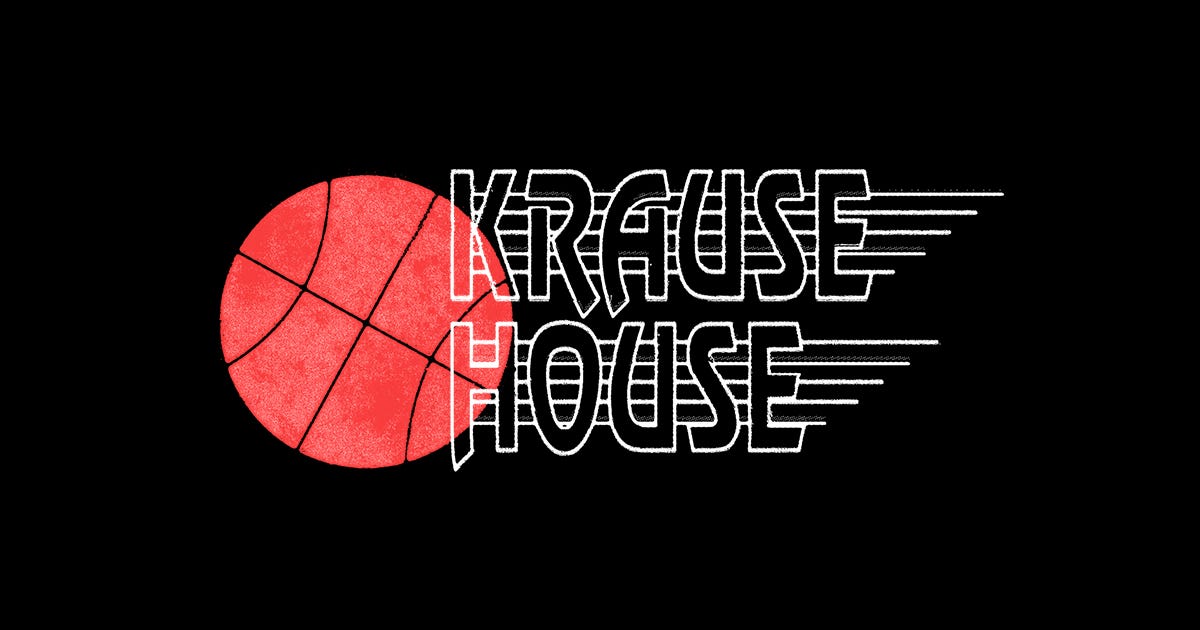

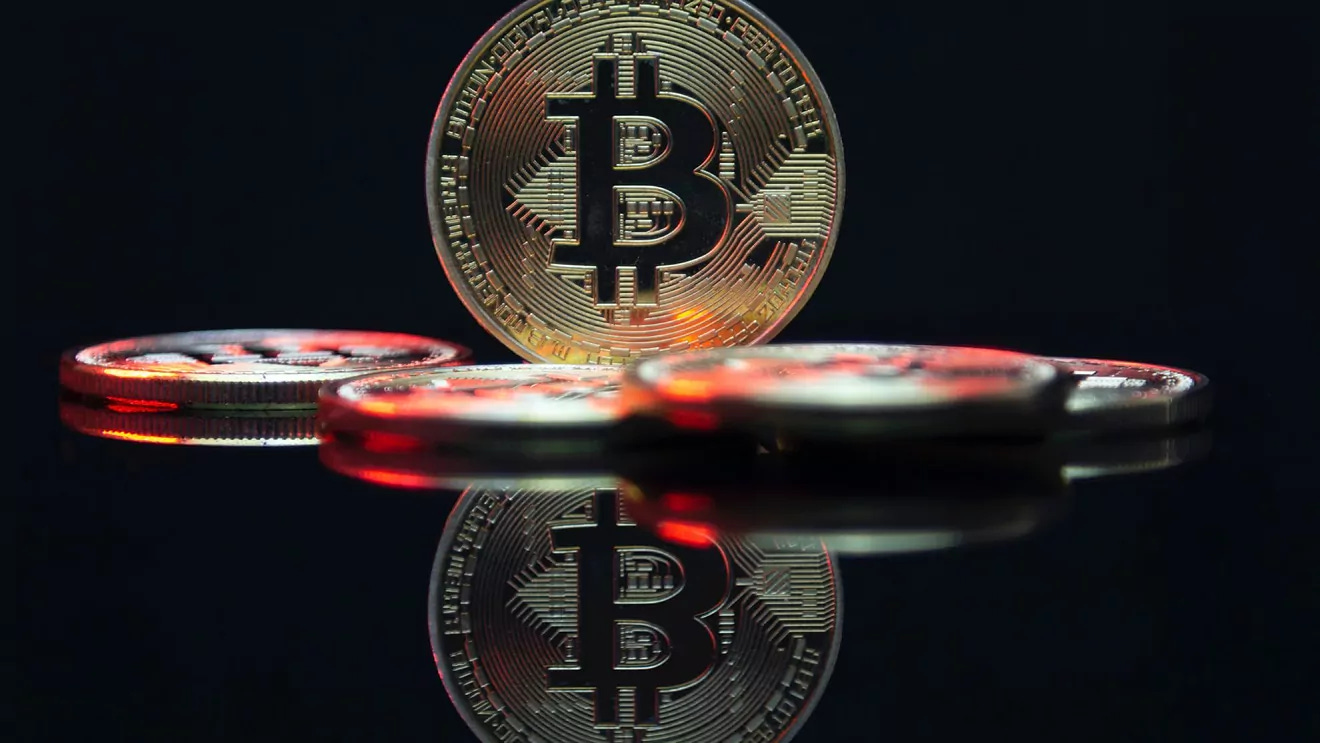


Sounds good but end of day in many leagues the owners need to vote to allow new ownership in. I can’t see anyway today the NBA or NFL would allow a DAO in the club. Plus need to raise billions - DAO Fundraising seems capped around $5-20M these days - at least that is what we see in biotech.